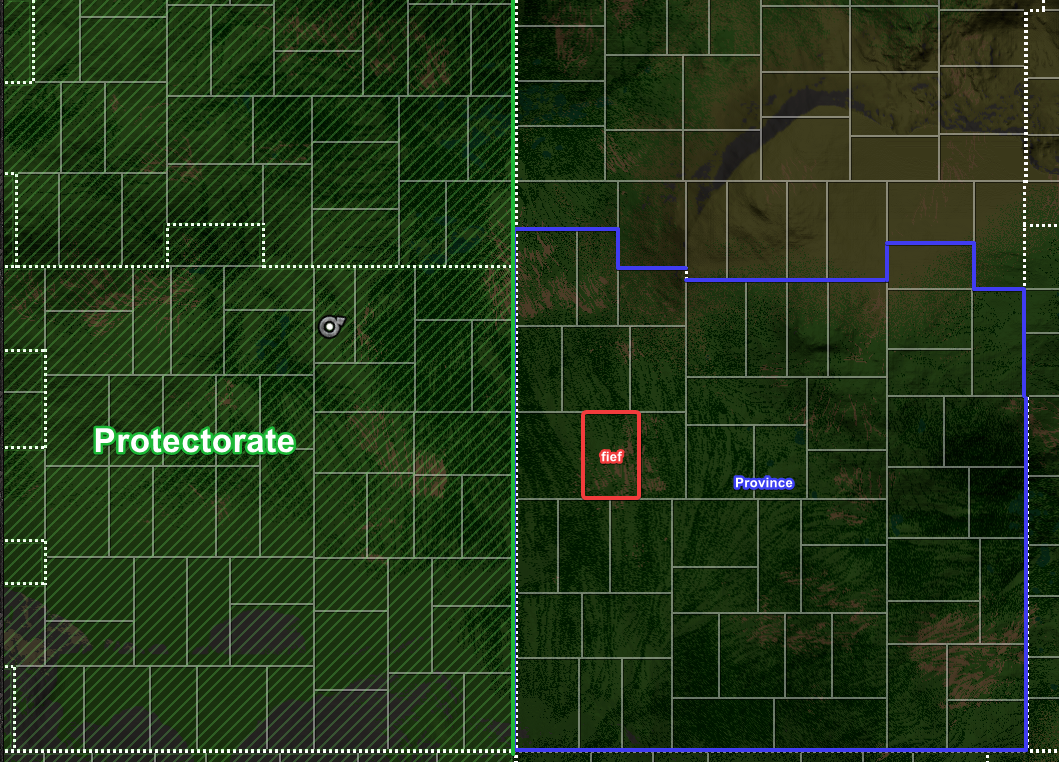
John Selden writes in Titles of Honour, "The word Baro (Latin for Baron) hath been also so much communicated, that not only all Lords of Mannors have been from ancient time, and are at this day called sometimes Barons (as in the stile of their Court Barons, which is Curia Baronis, &c. Thus in this historical sense, Lords of Manors are barons, or freemen however they are not entitled to be styled as such. Under King Henry II, the Dialogus de Scaccario already distinguished between greater barons, who held per baroniam by knight's service, and lesser barons, who held manors. Initially those who held land directly from the king by military service, from earls downwards, all bore alike the title of baron, which was thus the factor uniting all members of the ancient baronage as peers one of another. The robe worn by a baron during his creation ceremony in 17th-century Britain, engraved by Wenceslas Hollar. The greatest of the nobles, especially those in the Marches, such as the Earls of Chester and the Bishops of Durham, whose territories were often deemed palatine, that is to say "worthy of a prince", might refer to their own tenants as "barons", where lesser magnates spoke simply of their "men" ( homines) and lords of the manor might reference "bondmen". All who held their feudal barony " in-chief of the king", that is with the king as his immediate over lord, became alike barones regis ("barons of the king"), bound to perform a stipulated annual military service, and obliged to attend his council. Previously, in the Anglo-Saxon kingdom of England, the king's companions held the title of earl and in Scotland, the title of thane. Initially, the term "baron" on its own was not a title or rank, but the "barons of the King" were the men of the king.

įeudal baronies (or "baronies by tenure") are now obsolete in England and without any legal force, but any such historical titles are held in gross, that is to say are deemed to be enveloped within a more modern extant peerage title also held by the holder, sometimes along with vestigial manorial rights and tenures by grand serjeanty.Īfter the Norman Conquest in 1066, the Norman dynasty introduced an adaptation of the French feudal system to the Kingdom of England. In the Kingdom of England, the medieval Latin word barō (genitive singular barōnis) was used originally to denote a tenant-in-chief of the early Norman kings who held his lands by the feudal tenure of " barony" (in Latin per barōniam), and who was entitled to attend the Great Council ( Magnum Concilium) which by the 13th century had developed into the Parliament of England. A woman of baronial rank has the title baroness. In the Peerage of England, the Peerage of Great Britain, the Peerage of Ireland and the Peerage of the United Kingdom (but not in the Peerage of Scotland), barons form the lowest rank, placed immediately below viscounts. He glosses it as meaning servos militum and explains it as meaning "stupid", by reference to classical Latin bārō "simpleton, dunce" because of this early reference, the word has also been suggested to derive from an otherwise unknown Celtic * bar, but the Oxford English Dictionary takes this to be "a figment". Cornutus in the first century already reports a word barones which he took to be of Gaulish origin.


The scholar Isidore of Seville in the 7th century thought the word was from Greek βᾰρῠ́ς "heavy" (because of the "heavy work" done by mercenaries), but the word is presumably of Old Frankish origin, cognate with Old English beorn meaning "warrior, nobleman". The word baron comes from the Old French baron, from a Late Latin barō "man servant, soldier, mercenary" (so used in Salic law Alemannic law has barus in the same sense). Not to be confused with Baronet or Boron.


 0 kommentar(er)
0 kommentar(er)
